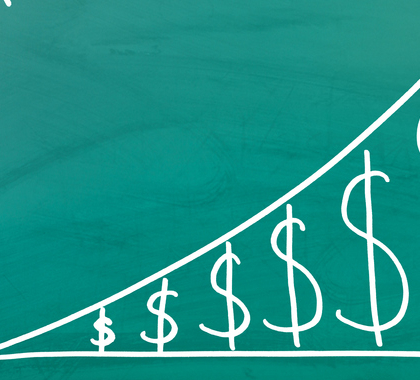Several Democratic presidential candidates are proposing raising the top income tax rate to 70 percent. Proponents want tax hikes to stem worsening inequality and adequately fund the Federal government. Opponents contend that such high tax rates will significantly reduce economic growth.
Economists are famous for disagreeing, but we agree that if we tax anything, we will have less of it. Income taxes reduce the incentive to work and produce income. The extreme case of a 100 percent tax illustrates this. With a 100 percent income tax, a person working full time and earning $50,000 will have the same after tax income as if they did not work. Who will work for nothing?
The Federal income tax is progressive, meaning that the marginal tax rate (the tax paid on the next $1,000 earned) increases with income. The highest current rate of 37 percent applies to income over $500,000. Marginal rates only apply to additional earnings. The tax rate on incomes over $1 million a year does not affect the taxes owed by Americans earning $100,000.
Diminishing marginal utility of income increases the disincentive of top rates. People value an extra $1,000 less when they have $500,000 than when they have $5,000. Millionaires can already pay for life’s necessities. A millionaire facing a 70 percent tax rate who could earn another million dollars might prefer to spend the money they have instead of working for $300,000 after taxes.
The 1980s tax cuts lowered top marginal tax rates from 70 to 28 percent to improve incentives, especially for the most productive earners. Elimination of loopholes made up for much of the revenue lost due to lower rates.
Evidence confirms the cost of high taxes. Internationally, higher tax rates are associated with slower economic growth. Domestically, people and income are migrating from high to low tax states. In 2016, New York lost $8 billion in personal income, while Florida added $17 billion.
Yet other evidence suggests that high taxes might not cost so much. First off, some billionaires continue to work. Anyone with more money than they could spend in a dozen lifetimes who continues to work must value something other than consuming more stuff. If so, will they work less in response to higher taxes? Indeed, despite a top tax rate of 90 percent until the Kennedy tax cuts in 1964, the 1950s and 1960s had the fastest economic growth of any decades since the end of World War II.
Creative economy workers frequently labor for modest monetary rewards. The Beatles complained in Taxman about Britain’s high taxes and yet created and performed their music. Digital copying has made making money from music difficult but has not killed off new music. Computer programmers contribute code for open source software for free.
The saying that money can’t buy happiness contains truth. We fill our closets, garages, and storage units with stuff (or junk). Netflix’s Tidying Up with Marie Kondo recommends throwing out anything not bringing us joy. Perhaps higher taxes will make us only buy things bringing joy.
After securing life’s necessities, many of the things people work for are positional goods. We value keeping up with (or ahead of) the Joneses, while billionaires try moving up the Forbes list of the 400 richest Americans. We cannot all acquire positional goods: everyone cannot have the nicest car. High tax rates might keep us from a fruitless pursuit of positional goods.
Can we integrate this conflicting evidence? For starters, the high income tax rates of the 1950s were almost irrelevant due to loopholes. The interplay of monetary and nonmonetary motives is complicated, and people might react differently when high tax rates prevent earning extra income. And even if money cannot buy happiness, high taxes may make us quite unhappy.
Can we afford higher taxes? Yes, although taxes entail costs, and the costs rise with tax rates. We must decide whether we want the Federal government to play a large or small role in our economy and lives. A large role for Washington will require higher taxes, and these taxes will be costly.





